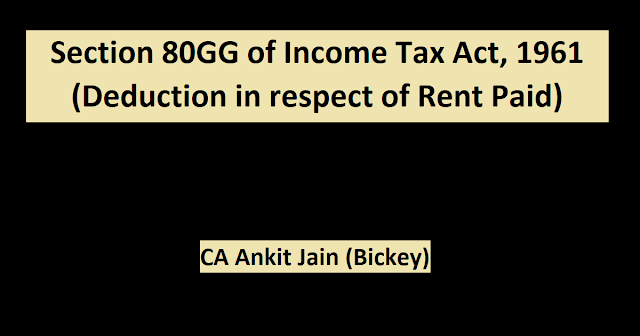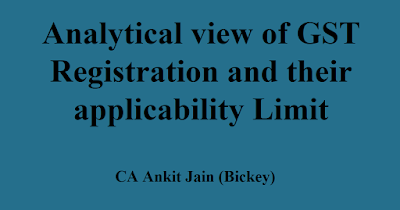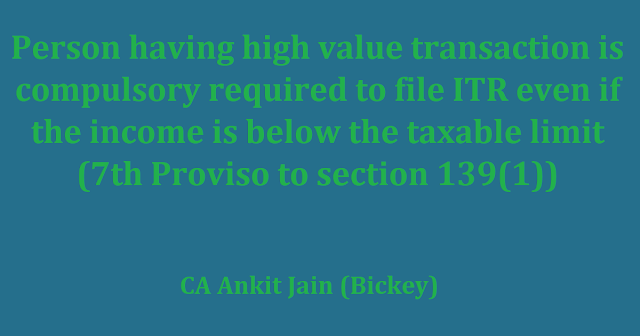Deduction in respect of Rent Paid (Section 80GG)

According to this section an individual can claim deduction of expenditure incurred in respect of furnished or unfurnished accommodation occupied by such individual for the purpose of his/her own residence to the extent as allowed by income tax department subject to such prescribed conditions or limitations. Conditions: Such individual does not receive House Rent Allowance (HRA) at any time during the year for which such individual are claiming deduction u/s 80GG. Such residential accommodation is not owned by the assessee or by the spouse, or minor child, or where such assessee is a member of HUF then not owned by such HUF at the place where he ordinarily resides or performs office duties or causes his business or profession. If you own any residential property at any place, for which your income from house property is calculated under applicable sections as a self-occupied property, no deduction u/s 80GG is allowed. The assessee is requi...



